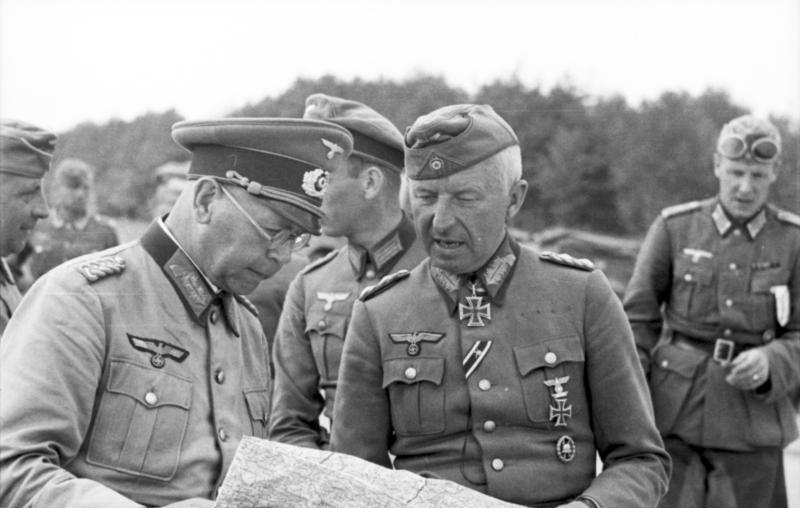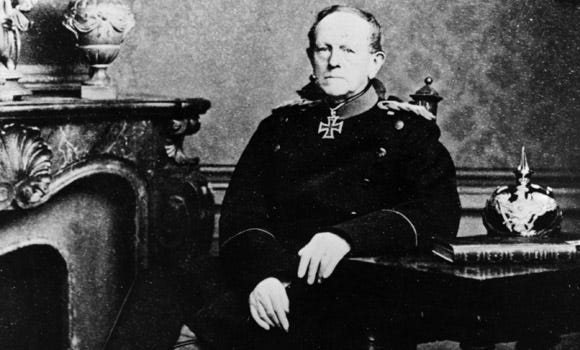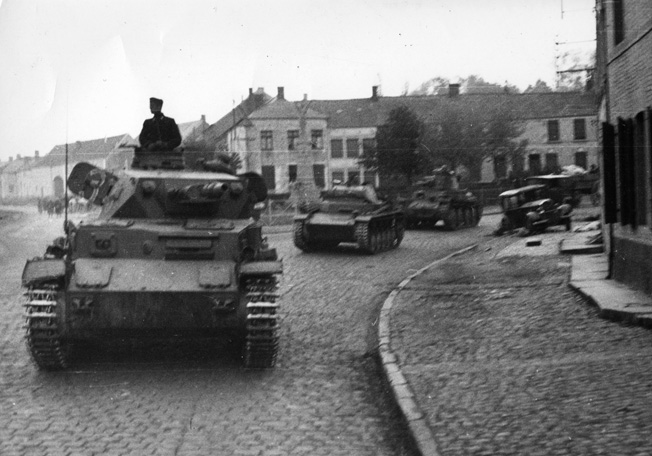 A Perspective of the Operational Level of War and Its Implications, by Lawrence L. Izzo, LTC, USA. This study is a historical analysis of the campaign waged by Field Marshal von Manstein on the Russian southern front during the winter 1942-1943. The study begins just after the 6th Army's encirclement in Stalingrad and describes the four principal phases of Manstein's campaign: the attempted relief of 6th Army; the protection of Army Group A as it disengaged from the Caucasus; the prevention of Manstein's lines of communications from being cut; and the counterblow to regain the initiative.
A Perspective of the Operational Level of War and Its Implications, by Lawrence L. Izzo, LTC, USA. This study is a historical analysis of the campaign waged by Field Marshal von Manstein on the Russian southern front during the winter 1942-1943. The study begins just after the 6th Army's encirclement in Stalingrad and describes the four principal phases of Manstein's campaign: the attempted relief of 6th Army; the protection of Army Group A as it disengaged from the Caucasus; the prevention of Manstein's lines of communications from being cut; and the counterblow to regain the initiative.Everything about Tactical Wargaming at its finest | Campaign Series | WinSPWW2 | WinSPMBT | Scenario Design | AAR | Military History
Saturday, 27 October 2018
An Analysis of Manstein's Winter Campaign on the Russian Front, 1942-1943
 A Perspective of the Operational Level of War and Its Implications, by Lawrence L. Izzo, LTC, USA. This study is a historical analysis of the campaign waged by Field Marshal von Manstein on the Russian southern front during the winter 1942-1943. The study begins just after the 6th Army's encirclement in Stalingrad and describes the four principal phases of Manstein's campaign: the attempted relief of 6th Army; the protection of Army Group A as it disengaged from the Caucasus; the prevention of Manstein's lines of communications from being cut; and the counterblow to regain the initiative.
A Perspective of the Operational Level of War and Its Implications, by Lawrence L. Izzo, LTC, USA. This study is a historical analysis of the campaign waged by Field Marshal von Manstein on the Russian southern front during the winter 1942-1943. The study begins just after the 6th Army's encirclement in Stalingrad and describes the four principal phases of Manstein's campaign: the attempted relief of 6th Army; the protection of Army Group A as it disengaged from the Caucasus; the prevention of Manstein's lines of communications from being cut; and the counterblow to regain the initiative.Wednesday, 17 October 2018
Understanding the Prussian-German General Staff System
This is a study, by Oberst i.G. Christian O.E. Millntot, of the Prussian-German General Staff system and its influence on the Bundeswehr. In addition to being a solid contemporary analysis of this key characteristic of successive German military structures, it contributes to the understanding of a little known aspect of an important ally's military. Professor Donald Abenheim, a well-respected expert on the Bundeswehr, has provided a foreword explaining the importance of the General Staff in the German Army, as well as its strong historical influence in U.S. military thinking. Applying the ideas and thoughts of von Moltke in a business environment can be found here.
Monday, 8 October 2018
Fall Gelb & the German Blitzkrieg of 1940 | Operational Art?
"The objective of this study is to determine if the German 'Blitzkrieg' and Fall Gelb of 1940 were an expression of operational art. Despite the mythology surrounding Fall Gelb, the campaign does not constitute a major breakthrough in operational art by the Germans." by Major Richard S. Richardson.
Tuesday, 2 October 2018
Why Brilliant Military Leaders Fail: Learning From Their Mistakes
"In the first decade of the 21st Century, the military observed the firing or resignation of the Chief of Staff from Air Force, the
Secretaries of Army and Air Force, plus several General Officers to include the Commander of Central Command. Naturally,
the question is why did these smart and otherwise extremely successful senior leaders lose their jobs? ..." asks Lieutenant Colonel Donald R. Drechsler in his interesting thesis.
Subscribe to:
Comments (Atom)


:max_bytes(150000):strip_icc()/battle-of-austerlitz-56a61bb23df78cf7728b60fb.jpg)